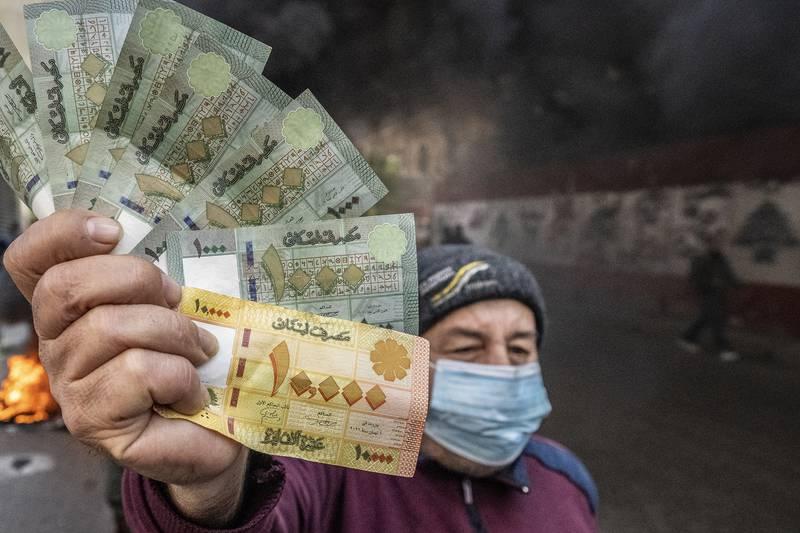
What Lebanon needs is clarity, not more twists and turns
It is sadly characteristic of Lebanon’s seemingly unending economic crisis that a resignation announcement from the central bank governor – a man embroiled in serious corruption allegations – produces more uncertainty.
In a functioning state, the departure of such a figure could offer a clean slate or a chance to change course. In Lebanon, gripped as it is by political paralysis, it serves only to highlight the country’s lack of options.
In a TV interview with Egyptian media on Sunday, Riad Salameh, one of Lebanon’s most controversial figures, confirmed that he would not stay on as head of Banque du Liban once his term ends in July, even if he were asked to do so.
Mr Salameh – who faces several European and Lebanese investigations but denies any wrongdoing – was at one point praised for keeping the country’s banking sector afloat. Now, he is one of the figures blamed for Lebanon’s economic collapse that first became apparent in 2019 and has been described by the World Bank as one of the worst in modern history.
His centrality to the country’s fortunes cannot be overstated. If this fifth six-year term proves to be his last, Mr Salameh will have spent three decades at the heart of the Lebanese economy. The smooth transition of such a key figure – whether in politics, business or the economy – generally requires considerable planning. In Lebanon, where consensus often seems to be beyond reach, doubts about finding a replacement are already surfacing.
Just before the weekend, Finance Minister Youssef Khalil was reported as saying that making such a big political change in the current climate would be “very difficult”. This is something of an understatement.
The governor of the Banque du Liban is proposed by the country’s finance minister, and appointed by a decree sanctioned by the Council of Ministers. That Lebanon’s current parliament has tried and failed almost a dozen times to choose a new president is a stark example of the country’s ossified governance. Meanwhile, the cabinet of Prime Minister Najib Mikati is in caretaker mode since last year’s elections and wields limited powers.
The stakes are high. This week, The National reported from Beirut on the country’s collapsing currency. Commercial banks are closed, transfers have been halted and cash machines are empty. Frustrated depositors have attacked and set fire to the entrances of at least five banks in the capital, and vandalised the home of the head of Lebanon’s banking association.
Many of Lebanon’s people – some of whom have been reduced to poverty over the past few years — are angry. The collapsing lira means those who are paid in the local currency are effectively losing money from the moment they receive their paycheque, leading to more protests and unrest.
Even more ominously, there were reports this week that Hezbollah has opened a new branch of its banking operation – Al Qard Al Hasan Association – in a majority-Christian and Druze area of Mount Lebanon where the Iran-backed organisation has traditionally enjoyed little support. The financial crisis is giving the movement an opportunity to present itself to a beleaguered and aggrieved population as an anti-corruption force.
As for the central bank, it may be the case that Mr Salameh reconsiders and stays on amid a lack of agreement on who could replace him. How this will affect negotiations to secure outside financial aid from the International Monetary Fund and others remains to be seen. However, one thing is for sure – ordinary Lebanese people have the most to lose as this saga continues.
Source: thenationalnews





